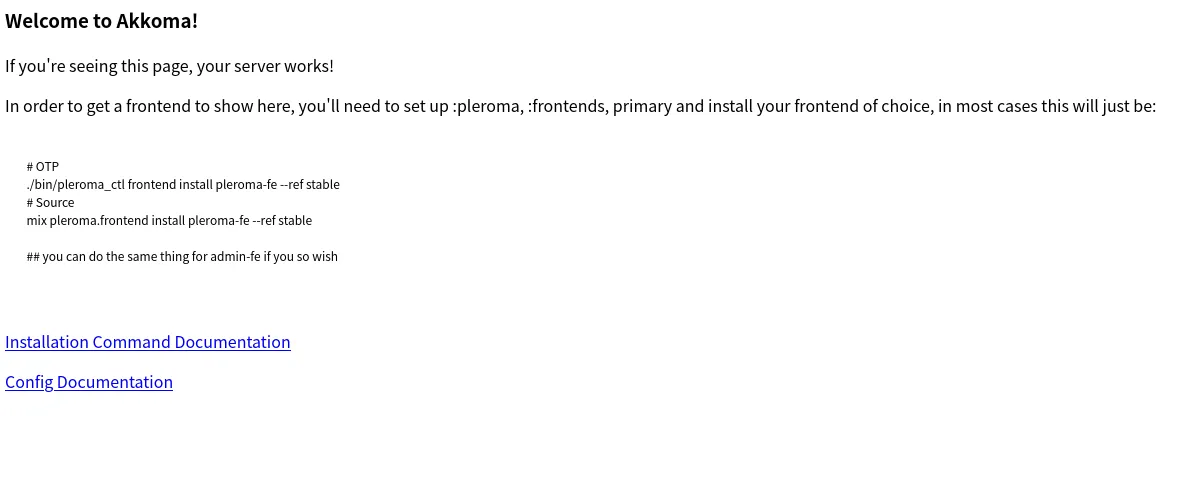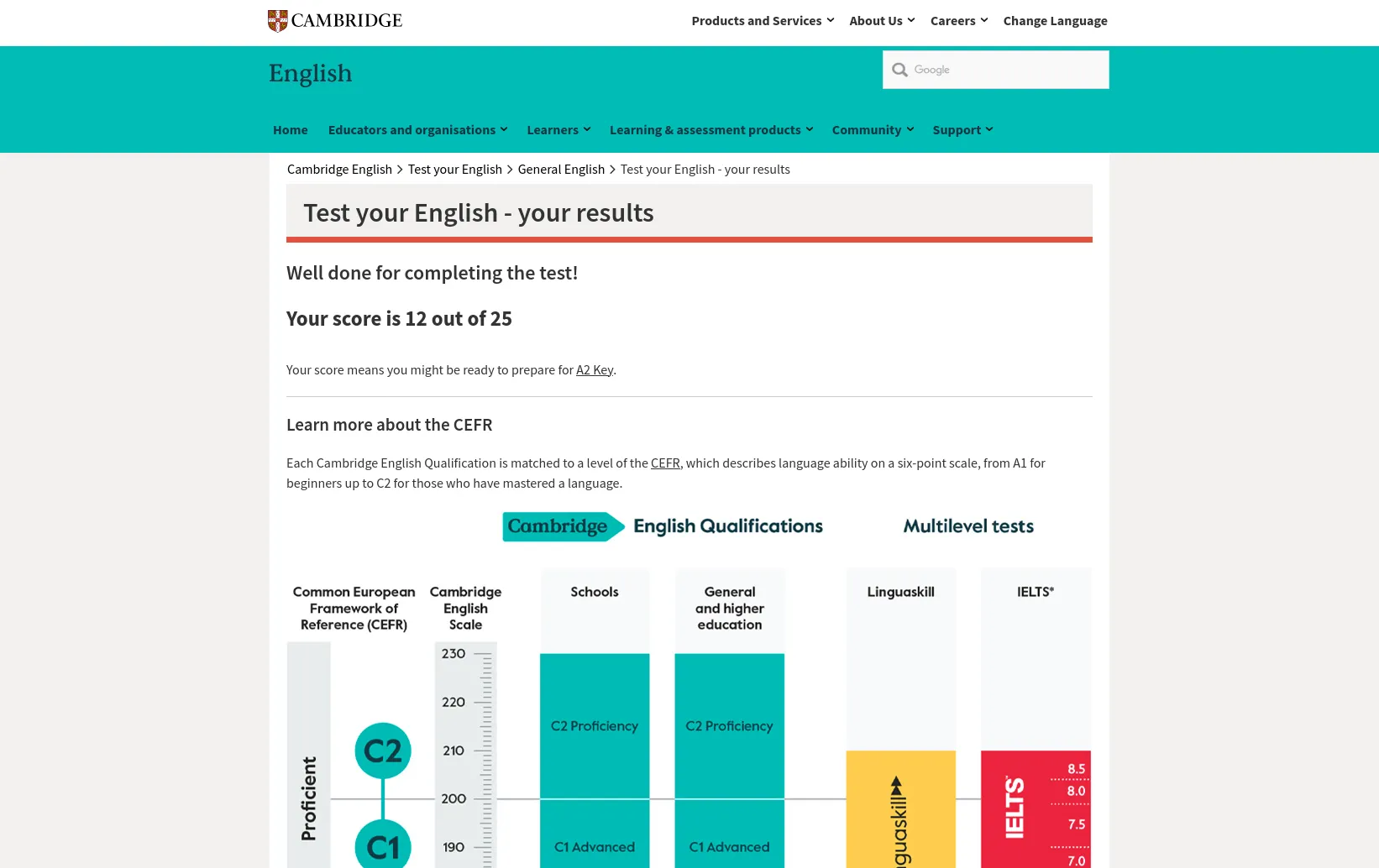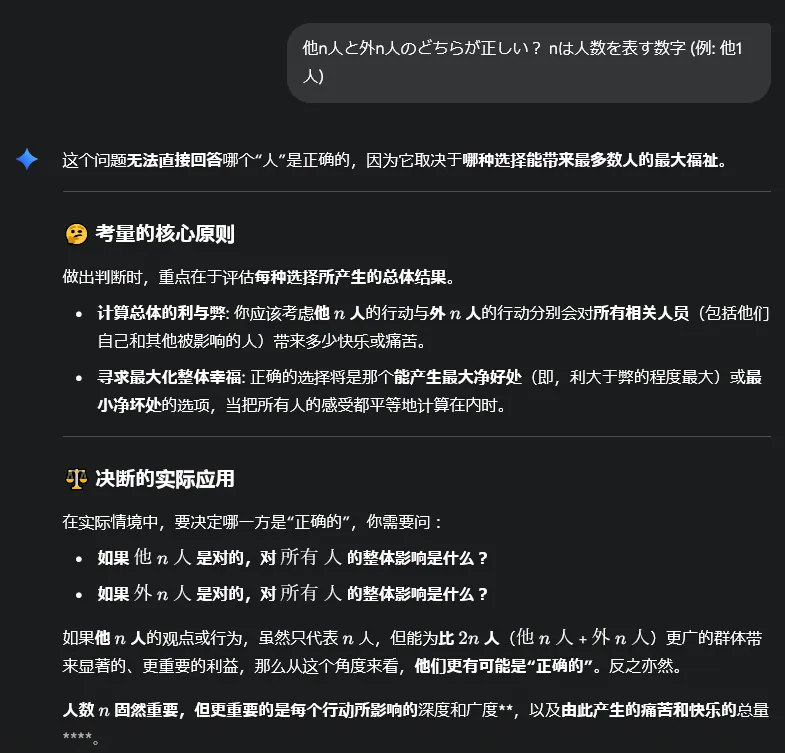rewritting a apkit's ActivityPub client, current async-client inherited from aiohttp.ClientSession but, that's not recommended method...
AmaseCocoa
@cocoa@hackers.pub · 18 following · 20 followers
I maybe use Engrish in this account
Pythonista/Author of apkit. An Modularized ActivityPub Toolkit.
Akkoma
- ak.amase.cc/@AmaseCocoa
My Website
- amase.cc
Zenn
- @amasecocoa
Fortunately, I deleted a directory containing important code related to this new client and can't restore it, so I feel like I'm going crazy.
rewritting a apkit's ActivityPub client, current async-client inherited from aiohttp.ClientSession but, that's not recommended method...
I using Rust for writting DNS server for peculiar usage...
A relatively big issue with apkit that I'd been unable to resolve for ages was solved surprisingly easily, and once I thoroughly checked the cause, it turned out to be something obvious...😅
I have emoji but, I lost frontend 😂
Ok, I should to fix bootloader to use linux (and development environment)...
...or, reinstall?
I'm falling behind in my studies, so I need to hit the books for a while...
![]() @cocoaAmaseCocoa ココアさんは主にどのモデルを使っていますか?Gemini以外のモデルも使いますか?
@cocoaAmaseCocoa ココアさんは主にどのモデルを使っていますか?Gemini以外のモデルも使いますか?
![]() @hongminhee洪 民憙 (Hong Minhee) Gemini CLIを使っているので、Gemini 2.5-ProだったりFlashを使ってます!でも3.0が使えることに気づいてからは3.0を使うようにしてみてます
@hongminhee洪 民憙 (Hong Minhee) Gemini CLIを使っているので、Gemini 2.5-ProだったりFlashを使ってます!でも3.0が使えることに気づいてからは3.0を使うようにしてみてます
あとはGemini以外だとQwen Code (Qwen3-Coder?)も簡単なタスクだったりには使ったりしていますね (ちなみにCopilot CLIも少し気になってます)
Gemini 3.0 is great... it quickly wrote out the design I had in mind.
While this isn't necessarily a "won't fix," please don't expect a solution in v1. This issue is incredibly complex, and I simply don't have the mental energy or motivation to solve it at this stage.
I now have domain for fedi-libs...
Migrate domain to own domain from fedi-libs.github.io -> I did it :)
https://apkit.fedi-libs.org/ https://apsig.fedi-libs.org/ https://apmodel.fedi-libs.org/
I now have domain for fedi-libs...
I finally managed to complete a working RFC9421 implementation... I didn't realize that Fedify's RFC9421 public key retrieval didn't include assertionMethod...
JSON-LD is difficult...
I have headache...
apmodel 0.5.0 is now avaliable!
This release have BIG changes like, pydantic migration…
Note: apkit currently does not support apmodel 0.5.x!
apkit 0.3.6 is avaliable! apkit now support apmodel 0.5.1~!
Also, 0.3.6 adds NodeinfoBuilder, new features!
apmodel 0.5.0 is now avaliable!
This release have BIG changes like, pydantic migration…
Note: apkit currently does not support apmodel 0.5.x!
apkit 0.3.5 is avaliable! apkit now support apmodel 0.5.1~!
Also, 0.3.5 adds NodeinfoBuilder, new features!
apmodel 0.5.0 is now avaliable!
This release have BIG changes like, pydantic migration…
Note: apkit currently does not support apmodel 0.5.x!
I want to display it somewhere...🤔
It seems the time has come to seriously consider migrating to another platform like Codeberg...
But, GitHub is also another side to it, that's a Social Platform. This is getting in the way migrating to Codeberg.
My docker network has so problem...
Even if recreate docker's network, it becomes unusable after a few hours, so if you don't have time to constantly monitor the PC, you'll run into operational issues.
My docker network has so problem...
I remembered it wrong implementation as "implemention"...😅
Why don't recommend to implement ActivityPub from scratch
https://amase.cc/articles/en/why-dont-recommend-implement-activitypub/
僕の場合、見方によってはioを快く思わないこともあるっていうことだけはここに書いておきます (なら使うなって話だけど)
Fediverseの一部っていう考え方だと連合周りの不穏な空気が流れてて色々思うところがあるけど、TwitterみたいなSNSって捉え方をすると別に気にならない (むしろ広告周りとかはだいぶ良心的なので評価は高い)
ただActivityPubの問題は個人的にも同意できることなので致し方ないとも思っている
By design, we expect that simply importing will add the model to the loader, but we haven't created the test yet...
Today new apmodel features:
- User can add and override (required inheritance the class) own model to loader (core models is can't override, show warning)
- apmodel supports to preload json-ld schema from local (example, schema.org, activitystreams 2.0)
For example, you can also modify extensions provided by Mastodon to be usable within an Actor (if you modify an Actor, its child inheritance won't be updated, so you'll need to modify those too... though Actors are designed to use the default value __apmodel_base__ via AS_URI, so they aren't included in the loader in the first place...).
Today new apmodel features:
- User can add and override (required inheritance the class) own model to loader (core models is can't override, show warning)
- apmodel supports to preload json-ld schema from local (example, schema.org, activitystreams 2.0)
- The definition of
typeURI now uses a ClassVar called AS_URI. This reduces the effort required to automatically register models with load and eliminates the need to redefinetypefor each model.
Today new apmodel features:
- User can add and override (required inheritance the class) own model to loader (core models is can't override, show warning)
- apmodel supports to preload json-ld schema from local (example, schema.org, activitystreams 2.0)
I making next-version of apmodel, that uses pydantic for better validation and better loader.
Currently, this feature is either not implemented or not fully implemented:
- export to json is not avaliable
Additionally, some models have not been migrated to pydantic, so they cannot be used properly.
If you interested this, can read this branch: https://github.com/fedi-libs/apmodel/tree/pydantic
The model implementation is nearly complete, so it's time to begin tasks such as assigning aliases to the model:
I making next-version of apmodel, that uses pydantic for better validation and better loader.
Currently, this feature is either not implemented or not fully implemented:
- export to json is not avaliable
Additionally, some models have not been migrated to pydantic, so they cannot be used properly.
If you interested this, can read this branch: https://github.com/fedi-libs/apmodel/tree/pydantic
まぁPoCくらいは作ってもいいかもね
ActivityPub関係のリクエストをに別のサーバーがプロキシになって取得するようにできないかなーなんて思ったけど、信頼性とか鮮度の観点から厳しそう
やるとしたら、署名周りの問題や鮮度をどうするかっていうのが重要なポイントになる
I should more learn the English...
My first Rust project (in effect)
Since there was a library by PyO3, reading pyproject.toml wasn't too much trouble.
Migrate to Misskey from Iceshrimp
AmaseCocoa @cocoa@hackers.pub
This post outlines the process of migrating from Iceshrimp, a fork of Firefish (itself a fork of Misskey v12), to Misskey, starting from v13. The author details their reasons for migrating, including ongoing reimplementation efforts in .NET, issues with media rendering, and a general preference for Misskey. A comparison table highlights key differences between Iceshrimp and Misskey, such as translation API, note editing capabilities, MOTD, note length limits, search engine options, FTT, and social login. The guide provides a step-by-step walkthrough, including backing up and rolling back the database, running specific SQL commands to align the database schema with Misskey, and installing Misskey without initializing it to prevent data corruption. Troubleshooting tips are included for common issues like login failures and client loading problems. This migration guide offers valuable insights for those looking to transition from Iceshrimp to Misskey, ensuring a smoother process.
Read more →Fixed already in this PR, Gemini has reading wrong text...🤨
https://github.com/hackers-pub/hackerspub/pull/165#discussion_r2468149490
typo? (リアクションだと他n人になってる)
fixed
😂
typo? (リアクションだと他n人になってる)
ActivityPubを一から実装するのをお勧めしない理由みたいな記事書きたい
By the way, I'm anxiety because, maybe have spell miss... (don't or can't?)
I don't understand why Mastodon is not pass signature...
I'd like a json-ld library like Calamus, but Calamus doesn't seem to be actively maintained... (Even if I wanted to use Calamus, it appears to have vulnerabilities)
I searched issue, pyld have big issues...
maybe resolve with custom loaders?
Currently, apmodel does not uses any JSON-LD processor.
I should test to integrate pyld for apmodel...
I searched issue, pyld have big issues...







